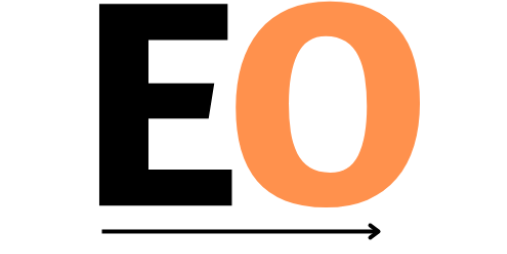How to Start Writing Online In 2024
Looking for how to start writing online in 2024? In the rapidly growing digital landscape, the potential for launching a writing career online has never been more promising. In 2024, aspiring writers have abundant opportunities to flourish in the digital space. Whether you’re a seasoned wordsmith looking for new frontiers or an up-and-coming writer ready to leave your mark, this guide is tailored to help you navigate the ever-changing world of online writing.
In this blog, we will explore vital strategies, emerging trends, and practical tips that will empower you with the knowledge and confidence to embark on your online writing journey. From comprehending the latest content platforms to harnessing the potential of niche specialization, we have you covered. Join us as we unravel the secrets to success in the thrilling realm of online writing in 2024.
How to Start Writing Online: Understanding the Digital Landscape in 2024
If you’re looking to start writing online in 2024, you must grasp the ever-evolving digital landscape. This section explores the latest trends that shape online writing and offers insights into navigating the dynamic world of SEO.

The Rise Of AI-Driven Content
Brands have long utilized AI marketing strategies, possibly even placing restrictions on the use of AI-generated content. Google acknowledges that AI-generated content intended to manipulate search results is considered spam. However, Google has also clarified that employing AI to aid content creation within the confines of acceptable usage is not in violation of its guidelines.
Determining the efficiency of Google in detecting AI systems is a challenging task, yet it is evident that AI-generated content warrants close attention. As per a UBS study cited by Reuters, ChatGPT achieved an impressive milestone of 100 million monthly active users in January 2023.
Moreover, I have discovered numerous other AI platforms that offer comparable chatbot services and the capability to craft entirely SEO-optimized blog posts. Later in this article, I will delve into the details of harnessing the power of AI. Mastering the art of seamlessly integrating it into your workflow and effectively collaborating with these systems will undoubtedly yield the finest outcomes.
The dominance of video shorts is on the rise.
YouTube, Instagram, and Meta have all delved into the world of video shorts on their platforms with the intention of challenging the cultural dominance of TikTok.
Platforms like Instagram have notably showcased increased engagement rates in regions like Brazil after introducing their Reels feature. It is estimated that the number of users could exceed 163 million by 2028.
Embracing video shorts and reels presents an excellent opportunity to curate brand exposure and captivate a vast audience.
Contrary to conventional long-form videos, short video clips present a greater chance for viral success and can directly contribute to the emergence of new trends in social media.
Influencer Marketing Is Evolving
Influencer marketing is far from being obsolete; it is undergoing a significant transformation.
What was once commonly known as influencer marketing has now evolved into what we refer to as the creator economy. Essentially, numerous brands are forging partnerships with online creators who produce engaging short and long-form content, ultimately attracting a substantial subscriber base to their platform.
The shift in approach exemplifies the dynamic marketing landscape, highlighting the influential collaboration between brands and digital content creators.
YouTube’s announcement last fall, sharing 45% of Shorts ads revenue with creators (although this figure has faced criticism), underscores the growing competition among social media giants. As social media continues to evolve, individual creators are now valued more than ever before, receiving well-deserved recognition and rewards.
There’s a greater demand for personal brand
In the current digital landscape, establishing a personal brand has gained significant significance. The advent of social media and the internet has made it simpler for employers and clients to investigate and assess potential candidates by examining their online footprint.
Personal branding entails promoting yourself and your professional journey as a distinctive brand. It involves effectively expressing your distinct abilities, background, and principles to distinguish yourself from other applicants.
And writing on the internet is a sure way to get your name out there in 2024.
Building Your Online Presence

Establishing a strong online presence should be your utmost priority, as it serves as a virtual storefront to showcase your skills. Here are some steps to take to build your online presence in 2024:
Create a website and domain name
In today’s digital age, creating a professional and visually appealing website no longer requires advanced computer skills or expertise in HTML. Platforms like WordPress, Wix, and Foursquare offer user-friendly interfaces that guide you through the entire process. I prefer WordPress. Although there is a learning curve, a little patience can yield great results.
After setting up your website and achieving a satisfactory appearance, it is important to acquire a domain name. A domain name serves as the address of your website, typically resembling http://FirstnameLastname.com or http://FirstnameLastnameWrites.com. (make sure you use a .com)
Bluehost, FastComet, and Wix provide domain hosting packages. Having a website without .blogger or .wixsite in the address is a worthwhile investment. It builds trust with readers and establishes a professional, credible image. Moreover, it guarantees ownership of your content. Unlike platforms such as Tumblr, Instagram, and Patreon that may unexpectedly delete user accounts for policy breaches, your website remains under your control!
When aiming to grow an audience, as a writer, your main priority should be your website and email list. While it’s encouraged to share content on other social media platforms, ensure that they all direct traffic back to your website. Your website serves as your home.
Create Content
This step seems obvious, but as a writer, you should publish your work where people can read it consistently. However, many people procrastinate hitting the publish button because of fear, perfectionism or whatever you may call it, but it’s necessary you avoid this mistake as content is necessary to remain relevant in today’s digital space.
The content on your website doesn’t have to be your absolute best work. It just needs to help you connect with your readers and expand your audience. Most importantly, it should be enjoyable! Writing, sharing, and being yourself should be a fun experience. Your website provides the perfect platform to showcase your personality, interests, and sense of humour.
Instead of thinking of it as self-promotion, consider it as having a friendly conversation with a group of friends. And just like in any good friendship, remember to reciprocate! Follow back those who follow you, engage with blogs that catch your interest, show appreciation by leaving comments or likes on posts you’ve enjoyed, and connect with like-minded individuals by exploring relevant tags.
Build an email list
Social media algorithms are always changing. Content creators lose motivation when an algorithm changes. Instagram, for example, makes it so that if someone doesn’t hit the like button on your content for a while, your content disappears from your feed.
Email is great for these two reasons: There are no algorithms, so your email is seen based on when you send it, and people don’t change their email as much as they do with other social media. Plus, email is seven times more likely to convert someone into a customer than social media! The earlier you begin building your email list, the more beneficial it will be in the long term, despite requiring some effort initially. Here are some email newsletter name ideas.
What exactly should you use email for? Its primary role is to cultivate a connection with your followers, boosting their engagement with your writing. Not everyone checks their social media accounts daily, but the majority do check their emails. It’s a convenient way to prompt readers about your writing or encourage them to visit your blog.
What should you put in your email? It’s good to include progress updates, occasional life updates, and any extra content. You can also share any writing-related giveaways, published short stories or poems, or offer a discount on courses or coaching programs. Whatever it is!
When it’s time to grow your email list beyond sharing website links on social media, begin by reaching out to your current followers. Send a message inviting them to subscribe, reminding them about your identity and the type of content you produce. Whenever feasible, add a personal touch.
Leverage Social Media

If you’re not using social media in 2024, then something is wrong. Studies have shown that almost 99% of global internet users ages 16–64 use a social network. Social media serves as a valuable tool for building a strong online presence as a freelance writer. It not only builds connections with potential clients and collaborators but also provides a platform for showcasing your writing style, sharing your work, and establishing yourself as an expert in your field.
Choosing a social media platform is the first step to take. You want to build on a platform relevant to your target audience and aligns with your personal brand. Focus on building a following on one or two platforms rather than spreading yourself too thin across multiple platforms. Consistently share your work, engage with your followers, and participate in online conversations related to writing and your area of expertise.
Ensure your profiles are professional and current, with a clear profile picture and description that authentically represents your brand. Interact with your followers by engaging with comments and messages, and explore paid advertising options to expand your reach.
Social media has the potential to enhance your online visibility as a freelance writer, but it’s crucial to acknowledge that it’s just a single component of your comprehensive strategy. Maintain consistency and authenticity, and prioritize quality over quantity. With dedication, you can establish a solid social media presence to attract new clients and advance your writing career.
Leverage SEO
SEO will always be important, as it helps you increase your visibility and attract new clients.
To begin improving your online profiles, ensure that your website and social media accounts contain appropriate keywords associated with your field of expertise and the services you provide. Employ clear, descriptive language in your profile summaries and ensure easy navigation.
Use meta tags, like title and description tags, on your website to help search engines understand your content better. Also, ensure your site is mobile-friendly and loads quickly, as this can impact your search engine ranking.
Lastly, seek to create backlinks to your website and profiles from other top-notch and pertinent websites. This can enhance your search engine ranking and boost your visibility to potential clients.
Optimising your online profiles (website and social media) for search engines requires dedication and hard work, but the benefits can be substantial. By ensuring your online profiles are search engine-friendly, you can enhance your visibility and draw in new customers, aiding in establishing a robust online presence as a freelance writer.
Stay active and engage with your community
Staying active and engaged with your online community is crucial for establishing a robust online presence as a freelance writer. Engaging with peers in your field and your desired audience allows you to cultivate connections, demonstrate your skills, and draw in prospective clients.
To begin creating and interacting with your online community, get involved in writing-related online forums and discussions. Engage with others on social media by commenting, liking, and sharing their content. Respond promptly to comments and messages, and maintain a respectful and professional approach in all your interactions.
Host webinars or online workshops to showcase your expertise and connect with your audience? Provide free samples of your writing or other resources that your target audience will find valuable.
Ensure that you consistently produce and distribute valuable and relevant content. This can aid in positioning you as a thought leader in your field and drawing in new followers and potential clients.
By actively participating in your online community, you can forge connections, demonstrate your expertise, and draw in new clients. This, in turn, can bolster your online presence as a freelance writer and propel your career forward.
Use tools to monitor your online presence and success.
Using tools and resources to monitor your online presence and achievements is crucial for establishing a robust online persona as a freelance writer. By observing and evaluating your online engagement, you can pinpoint areas for enhancement, monitor your advancement, and gauge the effectiveness of your endeavours.
To begin monitoring your online impact and achievements, think about using resources like Google Analytics to oversee your website traffic and involvement. Social media management platforms like Hootsuite or Sprout Social can also be used to monitor your social media presence, encompassing likes, comments, and followers.
Another helpful tool is a keyword tracking tool like Google Keyword Planner or SEMrush, to monitor search engine ranking and identify target keywords for your content.
Regularly review analytics to identify areas for improvement and track progress. Use this data to make informed decisions about your online presence and adjust your strategy as needed.
By using tools and resources to monitor your online presence and achievements, you can gauge the influence of your actions and make data-informed choices to enhance your online visibility and draw in new customers.
Keeping your online presence updated and relevant
Maintaining an updated and relevant online presence is crucial for freelance writers. It’s often the first impression potential clients have of you, so ensure it reflects your skills, experience, and values accurately.
To maintain relevance, regularly review and update your website and social profiles to ensure accuracy. This includes your portfolio, about page, and contact info.
Ensure your portfolio highlights your best work and represents the projects you’re interested in. Update it regularly to showcase your latest work.
Stay active on social media by posting consistently and interacting with your followers. This can help maintain your presence and draw in new followers and potential clients.
Ensure you are constantly learning and developing in your field. Participate in workshops, conferences, and webinars, and read industry publications to stay informed about the latest trends and best practices.
Regularly updating your online presence with relevant content allows you to highlight your skills, experience, and values, attracting new clients. This, in turn, helps you establish and uphold a robust online presence as a freelance writer.
Building your Network with other Writers

After establishing an online presence, the next step is building a network with other writers, as this is crucial to getting more gigs and building a wider reach as a writer.
Virtual Networking Events
In the digital age, attending virtual events is a game-changer. Seek out writing conferences and webinars to gain insights and connect with fellow writers.
Also, you should consider joining freelance writing meetup groups. Platforms like Meetup host various virtual and local freelance writing groups. Joining these meetups allows you to share experiences, exchange ideas, and establish connections.
Social Media Mastery for Freelance Writers
With LinkedIn, you can optimize your profile to showcase your writing expertise. Connect with peers, engage in discussions, and let your profile reflect your professional journey.
With Twitter, you can participate in writing chats and spaces to share your insights and connect with other influential voices to make your presence known.
With Instagram, you can showcase your writing journey by embracing the visual side of your writing journey on Instagram. Share snippets of your process, projects, and achievements. Follow fellow writers, use relevant hashtags, and build a community around your craft.
Online Writing Forums
Consider joining Reddit and Subreddits for Writers. Reddit hosts various subreddits catering to writers. Contribute to discussions, seek advice, and immerse yourself in the diverse world of Reddit communities.
Also, with Facebook groups, you can join niche-specific Facebook groups for opportunities, insights, and camaraderie with writers who share similar interests.
Collaborative Writing Projects
Seek collaborative opportunities, from co-authoring articles to participating in writing challenges, fostering deeper connections within the writing community.
You can also form a mastermind group for virtual meetings, brainstorming sessions, goal-setting, and mutual support among like-minded writers.
Guest Posting and Cross-Promotion
Consider pitching guest posts to fellow writers’ blogs or platforms to showcase your expertise and build connections.
Also, establish a network where writers cross-promote content, sharing articles, blog posts, or social media updates for mutual visibility and success.
Find Paid Writing Opportunities

There are tons of freelance writing opportunities in 2024, from ghostwriting to email copywriting. Here are some ways to get paid for your writing in 2024:
Upwork
While Upwork may have a bit of a reputation for offering low-rate jobs, it’s definitely possible to find postings offering decent wages for writing jobs online. When I was active on Upwork, I used to earn around $2000 to $3000 per month.
Also, you benefit from transparent pricing: You are aware of what you will receive before investing time in reading the complete job description.
FlexJobs
FlexJobs is a leading platform for freelance writing and remote work opportunities, allowing users to tailor their job search profiles. By choosing categories, work schedules, experience levels, and more, you can refine their job search results. Subscribers can receive alerts for new job postings, with subscription options starting at $9.95 per week.
ProBlogger Job Boards
Established by Darren Rowse from ProBlogger, a leading website on blogging, the ProBlogger job board showcases a range of part-time, full-time, contract, and freelance writing positions across diverse locations, industries, and writing niches.
Moreover, considering ProBlogger’s prominent position in the blogosphere, there’s a good chance you’ll come across job listings from major blogs and employers who understand the true value of quality writing. In addition to content writing, it also features a substantial number of copywriting opportunities.
Who Pays Writers?
Who Pays Writers? is a treasure trove—a crowd-sourced list of publications that compensate freelance writers. With hundreds of publications to explore, it not only reveals who’s accepting submissions but also their pay rates per word. Beyond research, the site presents online blogging chances, too (depending on the publication). Updated monthly by an anonymous volunteer collective, it’s a valuable resource for writers.
Linkedin Jobs
If you already have a LinkedIn profile (which you really should to attract new clients), don’t allow it to remain inactive. Networking is crucial in the freelance realm, and LinkedIn is an excellent tool for connecting through mutual contacts.
As you network, take a look at the Jobs section and subscribe to receive email notifications for relevant job postings. Although many are location-specific, consider reaching out to these employers to offer freelance writing services.
Perhaps they require someone to bridge the hiring gap temporarily, or maybe the role could be carried out remotely, which they hadn’t thought about. That’s a whole new type of pitch!
MediaBistro
MediaBistro is an excellent source for freelance media professionals, providing online classes, resources, and insights to assist you in navigating your professional journey.
Make sure to explore the freelance job board section of the website, where a diverse array of opportunities awaits individuals at every experience level across various industries, such as television, PR/marketing, magazine and book publishing, and social media. There’s something for everyone!
Offer E-Books, Courses, or Templates
Monetize your expertise by creating and selling digital products. E-books, online courses, or writing templates are valuable assets that not only generate income but also establish you as an authority in your niche. But you can only achieve this if you have an active online presence. So, this shouldn’t be your priority when starting out.
Launch a Patreon or Membership Platform
Explore platforms like Patreon to offer exclusive content to subscribers. This recurring income model provides stability and allows you to focus on delivering quality content to a dedicated audience. Again, this shouldn’t be your first option. Focus on building your audience first.
Publish your work on Paid Platforms like Medium and Twitter
Although you shouldn’t expect to make $10k monthly with this platform, publishing content on this platforms can help you pay some bills. Personally, I have made just over $100 a month on Medium Partner Program as I don’t solely focus on the platform, rather, my focus is on expanding my audience and selling my products and services.
Common Hurdles in Online Writing

You will face several hurdles in your journey as an online writer. Here are some common hurdles that writers often face:
Content Saturation:
With the abundance of online content, it can be tough to stand out. Many writers find it challenging to produce content that not only meets high standards but also stands out enough to grab readers’ attention.
To stand out, it’s important to focus on niche topics, do thorough research, and inject your unique voice into the content. It’s all about emphasising quality over quantity to attract a dedicated readership.
SEO Complexities:
SEO rules are always changing. It can be tough for writers to keep up with the latest algorithms and optimise content for search engines.
Keep yourself in the loop with top-notch SEO tips from reliable sources. Make the most of SEO tools to fine-tune content, delve into keyword research, and grasp search engine algorithms better.
Content Plagiarism:
Maintaining originality is crucial, yet writers may encounter challenges with unintentional plagiarism or unauthorized use of their work. Navigating copyright issues and ensuring content uniqueness is a common concern.
Utilise plagiarism detection tools to guarantee content originality. It’s important to clearly communicate expectations with clients about intellectual property and copyright issues.
Freelance Income Stability:
Freelance writers often face income instability. Securing a consistent flow of well-paying gigs, negotiating rates, and managing finances can be challenging, especially for those new to the freelance market.
Diversify your income by exploring different writing opportunities. Cultivate lasting relationships with reliable clients and think about setting up a financial buffer for lean periods.
Time Management:
Juggling multiple projects, meeting deadlines, and maintaining a work-life balance can be overwhelming. Time management becomes a critical hurdle, requiring writers to develop effective organizational skills.
Be sure to prioritise your tasks, set achievable deadlines, and make use of productivity tools. Establishing a consistent work routine is essential, and feeling comfortable saying no when your plate is full is key to maintaining a healthy work-life balance.
Adapting to New Technologies:
Technological advancements influence the writing landscape. Writers need to adapt to new tools, platforms, and writing formats, posing a challenge for those resistant to change or unfamiliar with emerging technologies.
Embrace lifelong learning. Get to know new writing tools, platforms, and formats. Consider attending workshops or online courses to stay in the loop with technological advancements.
Client Communication:
Effective communication with clients is vital for successful projects. Writers may struggle with unclear project briefs, unresponsive clients, or difficulties in conveying their creative vision.
Clearly outline the scope and expectations of your projects from the start. Keep those communication channels open, ask for clarification, and seek feedback to make sure you and your client are aligned.
Criticism and Rejection:
Receiving feedback, criticism, or facing rejection is part of a writer’s journey. Overcoming self-doubt and learning from constructive criticism can be emotionally challenging.
See criticism as a chance to grow. Build resilience and distinguish helpful feedback from your own value. Learn from rejection and let it motivate you to get better.
Maintaining Consistency:
Consistency in producing high-quality content is a hurdle for many writers. External factors, personal challenges, or creative blocks can hinder a writer’s ability to maintain a regular writing schedule.
Create a realistic writing schedule. Break down larger projects into smaller tasks, and set achievable milestones. Find what inspires you and use it to fuel your creativity consistently.
Balancing Creativity and SEO:
Finding the right balance between creating engaging, creative content and incorporating SEO strategies for visibility is an ongoing challenge. Some writers may find it difficult to integrate these elements seamlessly.
Integrate SEO into your content in a natural way. Concentrate on crafting valuable, reader-friendly content while strategically including relevant keywords. Find a balance to boost both creativity and visibility.
Isolation and Loneliness:
Freelance writing can be a solitary profession, leading to feelings of isolation and loneliness. Building a supportive network becomes essential for emotional well-being.
Actively work on building a network of fellow writers. Consider joining writing groups, attending meetups, or engaging in online communities to share experiences and combat feelings of isolation. Remember to prioritise mental health and seek support when needed.
Strategies for Resilience as an Online Writer in 2024

As a writer, you need resilience, which involves navigating challenges, adapting to changes, and bouncing back from setbacks. Here are some strategies to cultivate resilience in your writing career:
Develop a Growth Mindset:
Embrace challenges as chances to grow. See setbacks as learning experiences, and consider criticism as helpful feedback that can aid your improvement.
Build a Support Network:
Connect with fellow writers, get involved in writing groups, and build a support system. Having a community where you can share experiences, seek advice, and receive encouragement can be really valuable.
Set Realistic Goals:
Break down bigger writing goals into smaller, manageable tasks. By setting achievable milestones, you can make consistent progress and celebrate successes along the way.
Diversify Your Skills:
Expand your skill set to boost your adaptability. Try out various writing styles, genres, or formats, and read copywriting books. Acquiring new skills can unlock more opportunities and strengthen your resilience.
Maintain Work-Life Balance:
Prevent burnout by setting clear boundaries between work and personal life. Remember to schedule breaks, establish realistic work hours, and make time for activities that recharge your creativity.
Practice Self-Care:
Make sure to put your mental and physical well-being first. Try to include activities that bring you joy, relaxation, and fulfilment. Looking after yourself helps you deal with challenges with a clearer mind.
Learn from Setbacks:
When you encounter challenges or setbacks, take a moment to reflect on the experience. Consider the lessons learned, areas for improvement, and adjustments that can be made. Use setbacks as stepping stones to future success.
Cultivate Resilient Habits:
Develop habits that build resilience. This might involve keeping a positive outlook, staying organised, seeking feedback, and regularly updating your skills.
Embrace Flexibility:
Writing landscapes evolve, and adaptability is crucial. Being open to experimenting with new niches, platforms, or writing styles is key. Embracing change helps you stay relevant and discover new paths to success.
Celebrate Achievements:
Acknowledge your accomplishments, regardless of their size. Celebrate milestones, completed projects, or positive feedback. Recognizing your achievements boosts confidence and reinforces your resilience.
Seek Constructive Feedback:
Actively solicit feedback from peers, mentors, or editors. Constructive criticism provides valuable insights and can guide you in refining your craft.
Stay Informed:
Keep yourself informed about industry trends, changes in reader preferences, and emerging technologies. Staying abreast of developments allows you to adapt your writing strategies accordingly.
Set Realistic Expectations:
Establish realistic expectations for your writing career. Understand that challenges are part of the journey, and success often comes with perseverance and resilience.
Focus on What You Can Control:
Concentrate on aspects of your writing career that you can control. While external factors may be unpredictable, your approach, effort, and continuous improvement are within your control.
Celebrate Resilience as a Process:
Recognize that building resilience is an ongoing process. Every challenge you overcome contributes to your growth as a writer. Embrace the journey and the resilience it instils in you.
Conclusion
Writing online in 2024 holds so much promise and potential. From keeping up with digital trends to establishing a strong online presence, aspiring writers have what it takes to excel in this dynamic landscape. Embracing AI-driven content, harnessing the influence of video shorts, and adapting to the changing influencer marketing scene are all vital. And don’t forget, personal branding is key to standing out in a crowded digital space.
To sum up, excelling in online writing comes down to three key skills: grasping the digital landscape, creating engaging content, and building a network. From mastering SEO to effective client communication, each aspect is pivotal. So, arm yourself with the right tools on how to start writing online, stay resilient in the face of challenges, and let your words craft a tale of success in the dynamic world of online writing in 2024.
FAQs
Q: How can I stay updated on the latest trends in online writing?
A: Follow reputable blogs, subscribe to industry newsletters, and engage with writing communities on social media platforms. Staying informed ensures you’re well-equipped to adapt to the evolving digital landscape.
Q: What’s the significance of building a personal brand for online writers?
A: Establishing a personal brand sets you apart in a crowded online space. It involves showcasing your unique voice, skills, and values. A strong personal brand not only attracts clients but also enhances your credibility and visibility.
Q: How do I effectively leverage social media as a freelance writer?
A: Choose platforms aligned with your target audience, share your work consistently, and engage with writing communities. Quality over quantity matters. Keep your profiles professional, and explore paid advertising options to expand your reach.
Q: What are the common hurdles in online writing, and how can I overcome them?
A: Hurdles include content saturation, SEO complexities, and income stability. Overcoming these challenges requires niche focus, continuous learning, and diversifying your skills to adapt to the changing landscape.
Q: How can I build a network with other writers for more opportunities?
A: Attend virtual events, join online writing forums, and participate in collaborative projects. Leverage social media platforms like LinkedIn and Twitter to connect with peers, engage in discussions, and showcase your expertise to a wider audience.




